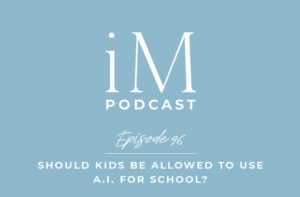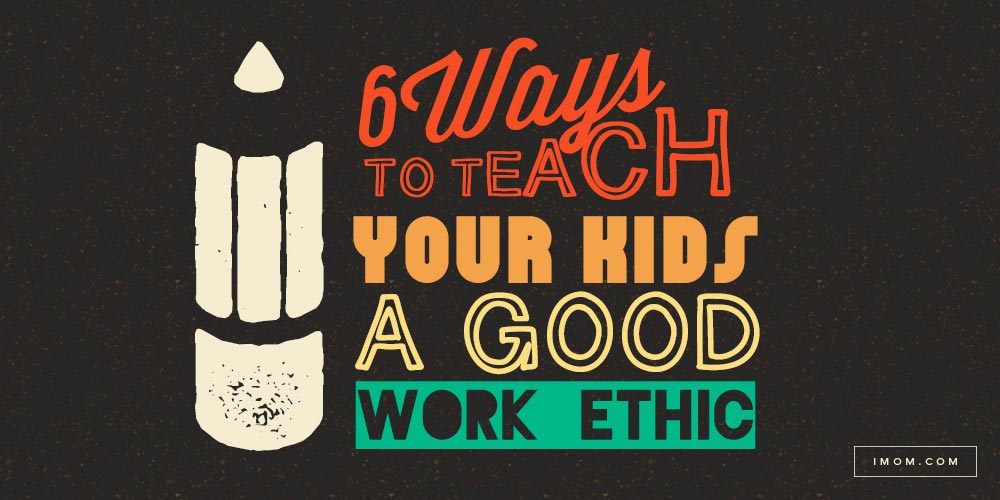I had another “first” this school year. For the first time, I looked in the “Academic Dishonesty” section of the handbook. I was curious after a conversation with a friend who asked, “Is using A.I. cheating?” He said his daughter used a content generator to write a European history paper. When my friend questioned his daughter, she said, “It’s how everyone does research now. It’s fine.”
Cheating has always been pretty black and white, but A.I., specifically programs like Gemini, is making it more gray. Not familiar with a content generator? It’s a long-form questions-answering chatbot that can write a paper on “causes of the Civil War” in 10 seconds. If you’ve got kids who want to use A.I., or you find out they’re using it, and you’re not sure that’s the right thing to do, try asking yourself these 6 questions.
1. What does my child’s school handbook say? Is using A.I. cheating?
If the handbook and honor code state that using A.I. is cheating, then your kids need to hear that loud and clear. Go over the handbook together so they know which tools are off-limits.
A friend told me her son’s science teacher told students they could use Gemini to generate ideas. If that’s the case with your kids’ teachers, where should students draw the line? They need to ask individual teachers if it’s OK and how much it can be used, or they might find out the hard way.
2. Do my kids think it’s cheating?
In a survey of over 1,000 students conducted for Junior Achievement, 60% said they think using A.I. is cheating. Ask your kids where they stand and why. My friend’s daughter, who used it for European history, admitted it’s kinda cheating, but she thinks her grade will suffer if she doesn’t use A.I. (And 17% of the kids in the survey said the same thing.)
Whatever reason your kids give for using A.I., nothing justifies cheating. We have to make that clear to them. Gray areas in our kids’ consciences create muddy waters that spill into other areas. The next time they have a choice to make, they’ll be tempted to choose the easier (and possibly deceitful) path.
3. Is it plagiarism?
When I was a kid, plagiarism was pretty obvious. If a classmate copied the entry for “French Indian War” right out of Volume E–G of her Encyclopedia Britannica, it was evident. She’d get her paper returned with a big red F and get a free trip to the principal’s office.
Many kids argue that using Gemini isn’t plagiarism because the content it creates is new, not copied from another source. The best response to that would be the definition of plagiarism: taking someone else’s work or ideas and passing them off as one’s own. Seems clear-cut to me. You shouldn’t put your name on something you didn’t write. You can also ask your child if using A.I. feels authentic. That’s a big word with this generation.
4. What’s the hidden cost of using content generators?
In the Junior Achievement survey, students were asked their reason for using A.I. for schoolwork, and 22% said they believe it eliminates the need to acquire knowledge. That’s scary and disheartening. It’s one thing to use technology for a boost; it’s another to use it as a shortcut to avoid learning.
You may be on the fence about A.I., so think about what skills kids gain through “old-fashioned” learning: critical thinking, writing, processing information, and formulating thoughts. These are all basic skills that they need for their future careers and relationships.
5. Is it pointless to resist A.I.?
As technology advances, education tends to evolve. Whether that’s for better or worse is debatable. We used to get pushback for using spell check, then grammar check. Gradually, these things became integrated into how we all work.
I think this is a two-part question. Maybe the answer to the question about resisting A.I. is, “Yes, we have to move with technology, not against it,” but then part two should be…
6. If this is the direction we’re going, how do I guide my kids?
One of our duties as parents is to teach our kids the way so they don’t get lost when they have to walk on their own. That’s why most parents let kids have phones, date, and learn to drive before they move out. Don’t be afraid to sit with your child and play around with A.I.. See what it spits out, and encourage your child to think critically about the results.
How about we use this parenting challenge to our advantage? While it’s wise to question if using A.I. is cheating and show concern over our kids’ educations, the debate over A.I. is also a chance to have deeper conversations with them about important character traits like integrity, diligence, and self-discipline.











